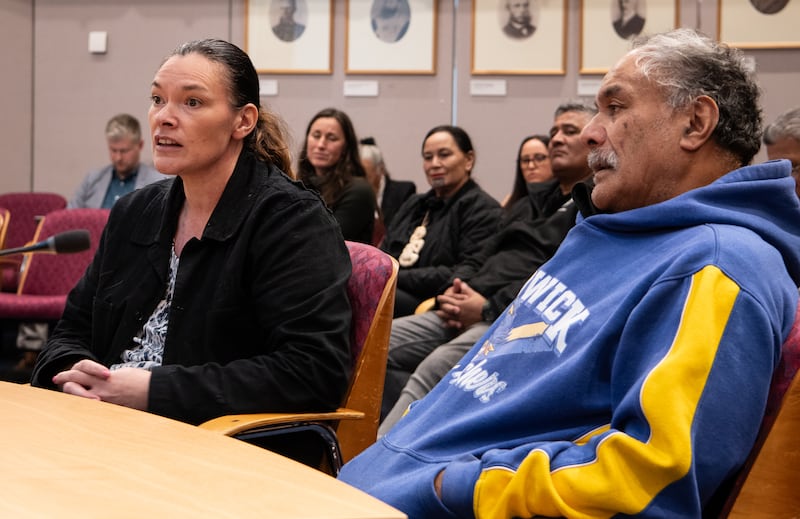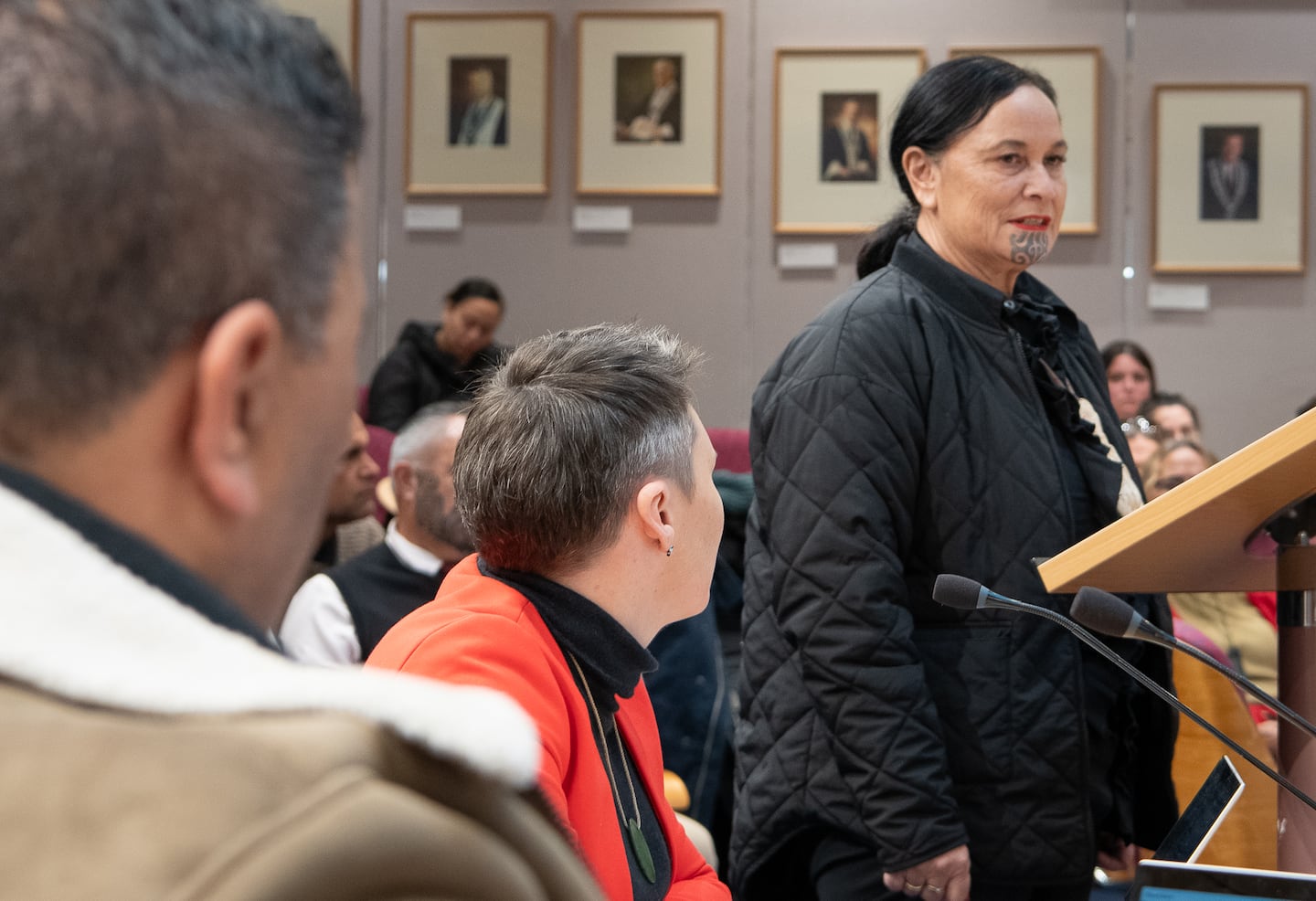Taranaki local body politicians are looking to keep their powder dry as the battle over seabed mining intensifies through the new Fast-track process.
Pressure is mounting as the Environmental Protection Agency selects its panel to rule on an Australian company’s bid to mine the South Taranaki seabed under the Fast-track Approvals Act.
Deputations this week asked Taranaki Regional Council (TRC) and New Plymouth District Council to declare against Trans-Tasman Resources’ proposed mine off the Pātea coast – and prepare for a looming hearing.
Some councillors feared being shut out of the decision-making process if they took a stand – and staff advised some caution.
Te Tai Hauāuru MP Debbie Ngarewa-Packer implored TRC’s Policy and Planning Committee to hold their democratic role higher than bureaucratic process and get alongside their communities.
“I say this as an elected member to other elected members… because at the end of the day, you are us, and we are you,” said the Pāti Māori co-leader.
Ngarewa-Packer – a former deputy mayor of South Taranaki – pointed to TRC’s failure to have a say on the Treaty Principles Bill, after veteran councillors threw up a controversial procedural block.
“I watch you be silent on Tiriti issues, and I was really interested in your stance on that.”
“Are you part of us? Or are you going to stand on the side, the little island, away from the rest of us that are fighting this, away from the rest of us that have to confront this.”
South Taranaki District Council (STDC) and Whanganui District Council (WDC) already voted unanimously to oppose the mine.
Fiona Young from Protect our Moana Taranaki recalled STDC telling Parliament any economic benefits wouldn’t outweigh the “environmental vandalism” of seabed mining.
“Being neutral is not an option when you have a duty by which to uphold the care of our ecosystems and the well-being of our communities.”
TTR has said the 45 million tonnes of waste sediment it plans to discharge back into the environment every year will be insignificant in the turbid Tasman Sea.

The company promised an economic boost in Taranaki and Whanganui, 1350 New Zealand jobs and said it’ll be one of the country’s top exporters.
Celine Filbee – the STDC councillor appointed to the TRC committee - said the regional council was “privileged and lucky” to be likely to get a say in the Environmental Protection Authority (EPA) decision-making process.
“If we as a group in this room move a motion to oppose seabed mining, that will create a conflict of interest and we will be immediately struck off that hearing panel, which gives us no voice,” she warned.
TRC strategy lead Finbar Kiddle said the council had three probable inputs in the EPA’s judgement of Trans-Tasman’s Fast-track application:
• Help choose one of the four panel members• Give formal comment on the application and speak if the Authority holds a hearing• Comment on consent conditions
He said the Fast-track Approvals Act gives more weight to potential regional and national economic benefits of the seabed mine, while downgrading environmental bottom lines.
“The bar for declining it is very high, and we shouldn’t mince words about that.”
He advised the council remain neutral while appointing a panel member, then consider taking a stand when writing comments and appearing at any hearing.
The deputation next appeared at Te Huinga Taumatua – the iwi committee of New Plymouth District Council (NPDC).
All eight iwi around the Maunga are publicly against the proposed mine off Pātea.
Te Rūnanga o Ngāti Ruanui kaiwhakahaere Rachel Arnott told councillors and iwi reps to help their southern whanaunga be heard.
“Where’s our hapū voice? Where is our mokopuna voice? Where’s our whānau voice? Where’s the community voice?”
The council’s chief executive Gareth Green said initial advice was that only regional councils would be formally involved in the Fast-track process, so it was open for NPDC to join South Taranaki and Whanganui in an “advocacy position”.
Te Huinga Taumatua almost unanimously called on the full council to declare opposition at its next meeting in two weeks.
Only mayoral hopeful Sam Bennett abstained, wary of demonstrating bias before hearing from TTR’s only known local shareholder – millionaire Phillip Brown – at a public workshop next Wednesday.
LDR is local body journalism co-funded by RNZ and NZ on Air


